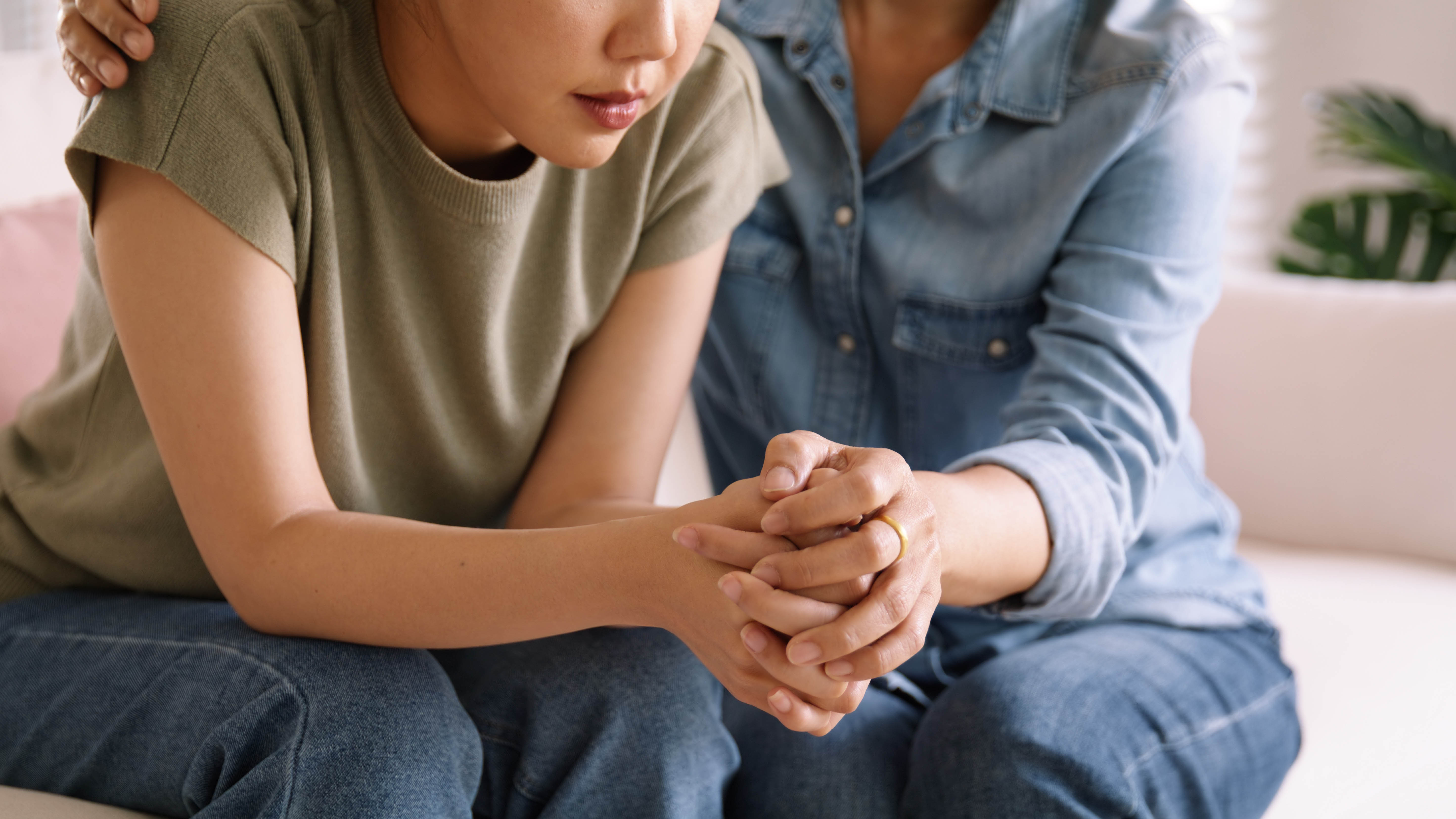The Intersection of Endometriosis, Infertility, and Emotional Well-Being: Navigating the Journey with Self-Compassion
Healthy View

Written by Mary Keogh, Registered Psychotherapist, Adelaide Health Clinic
Let’s be real for a second - living with endometriosis is tough. It’s not just the ongoing pain, heavy periods, or digestive problems. It's also the emotional toll that people often overlook. For many, endometriosis is closely tied to infertility, which can feel like an overwhelming mix of loss, confusion, and grief. As a Registered Psychotherapist who specializes in women’s health, and someone who’s personally experienced the challenges of living with endometriosis, and, as a result, infertility, I know how deeply it affects your emotional well-being. For anyone going through this, your mental health matters just as much as the physical treatment you're receiving. Let’s dig deeper......
How Endometriosis Affects Fertility
Endometriosis is when tissue that’s similar to the lining of your uterus starts growing outside of it, causing pain and sometimes even affecting other organs. And unfortunately, for many women, this also means infertility. Up to 50% of women with endometriosis face difficulty getting pregnant, which is a tough pill to swallow.
When you’re dealing with chronic pain already, the added frustration of infertility can feel like a cruel double whammy. The treatments (think possibly IVF or surgery) offer hope, but let’s not sugarcoat it - they come with emotional, physical, and financial strain. It’s a lot.

The Emotional Roller Coaster
If you’re in this boat, it’s okay to feel emotionally drained. The journey isn’t just about managing pain or undergoing treatment. It's about the emotional toll that comes with it. Here’s a rundown of the common emotional challenges that come with endometriosis and infertility:
- Grief: When your dream of having a biological child is interrupted or delayed, there’s a mourning process. Whether it’s realizing getting pregnant may take longer, or the pain of a failed treatment, it can all feel like a deep loss.
- Anxiety and Stress: The uncertainty of treatment plans, waiting for test results, or just juggling daily life while going through this emotional rollercoaster can lead to a lot of anxiety. And let’s not forget about the fear of how this might affect your health and future fertility.
- Self-Worth: Society places a lot of pressure on the idea of motherhood, especially biological motherhood. If that’s not in the cards for you, it’s easy to feel like you’re not enough. Trust me, it’s a valid feeling, but it’s also not the whole story.
- Depression: The combination of chronic pain and infertility often leads to depression. Feeling sad or hopeless during this time is completely normal - and it doesn’t mean you’re weak. Your emotions are valid.
- Relationship Strain: Fertility treatments can take a toll on your relationship. Between physical exhaustion, emotional stress, and financial strain, it’s easy to see why couples may experience tension or distance. Communication is key to keeping things connected.

Supporting Your Emotional Well-Being
I get it. Endometriosis and infertility are heavy. But there are ways to care for your emotional health while navigating the ups and downs. Here are some practical tips to help you on your journey:
- Acknowledge Your Feelings: Whatever you’re feeling - whether it's sadness, frustration, or anger - it’s real. Don’t push it aside or pretend it’s not there. Take the time to really process your emotions. Whether that’s talking to a therapist, a friend, or journaling, make sure to give your feelings the space they deserve.
- Practice Self-Compassion: It's so easy to be hard on yourself. You might feel guilty for feeling sad or frustrated. But here’s the thing: treating yourself with kindness is crucial. Let yourself rest when needed. Allow yourself to grieve, to feel sadness, and to take a step back when it all feels too much.
- Seek Therapy: Therapy can be a game-changer. As a psychotherapist, I help people explore and process their feelings about infertility and chronic illness. Therapy gives you tools to manage stress, anxiety, and grief, and helps you feel more empowered in your journey. I’ve been there too. I get it.
- Talk Openly with Your Partner: Fertility struggles can cause tension, so it’s essential to communicate openly with your partner. Share your emotions, frustrations, and needs. If your partner doesn’t fully understand, educate them on what you’re going through. It’ll help strengthen your connection during this stressful time.
- Join Support Groups: Sometimes, the best thing you can do is connect with others who are in the same boat. Whether it’s an online community or an in-person group, talking with others who understand your journey can feel incredibly validating. You're not alone in this.
- Focus on What You Can Control: It’s easy to feel like things are spinning out of control, but there are aspects of your life that you can control. Focus on self-care, eat well, move your body, or try mindfulness practices. It might not solve everything, but it’ll help you feel more grounded.
Next Steps
If you’re struggling emotionally with endometriosis and infertility, please know that you’re not alone, and it’s okay to ask for help. It’s tough, but you can get through this. With time, support, and a little self-compassion, you’ll navigate the ups and downs with strength.

About the Author
Mary Keogh is a Registered Psychotherapist based at the Adelaide Health Clinic. She specializes in helping individuals manage stress, emotional challenges, and difficult transitions, particularly in women’s health.
Want to know how therapy can support your mental well-being?
Book a 15-minute complimentary consultation with Mary Keogh and start the conversation on how she can support you today.
397